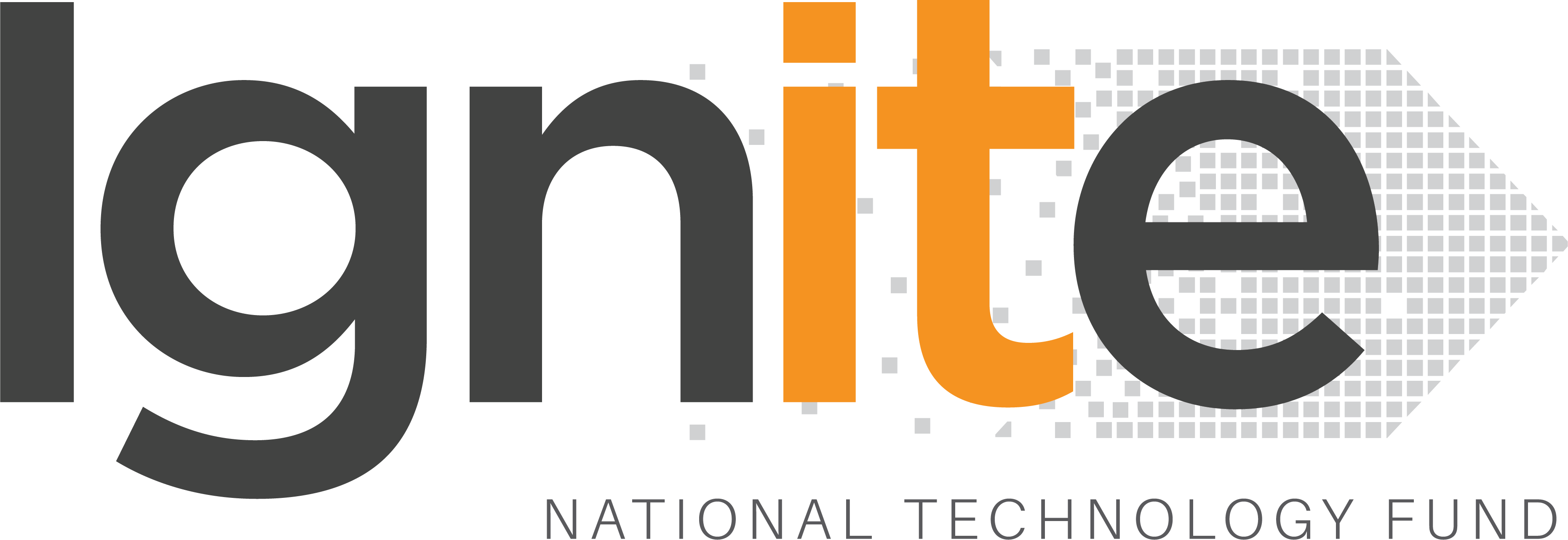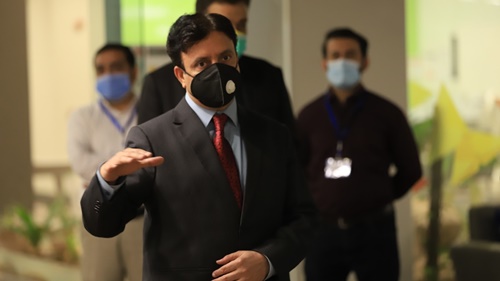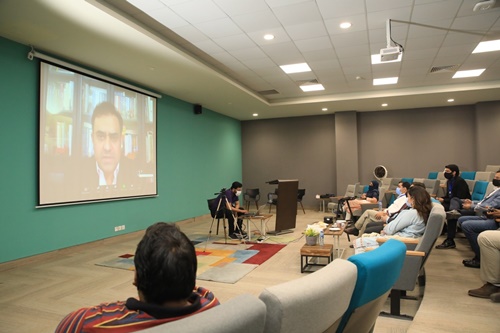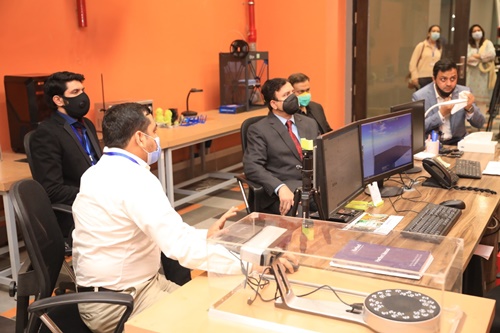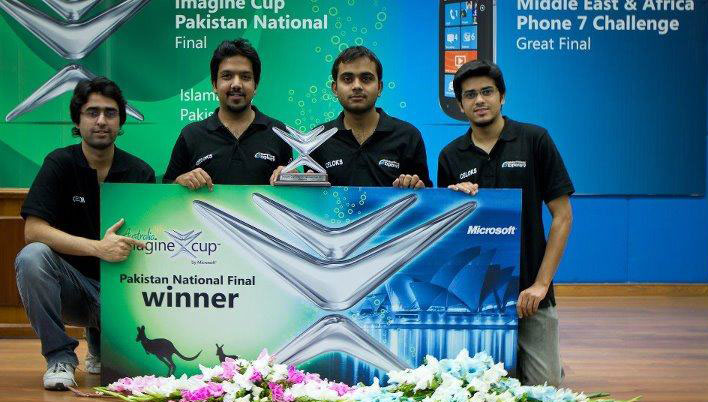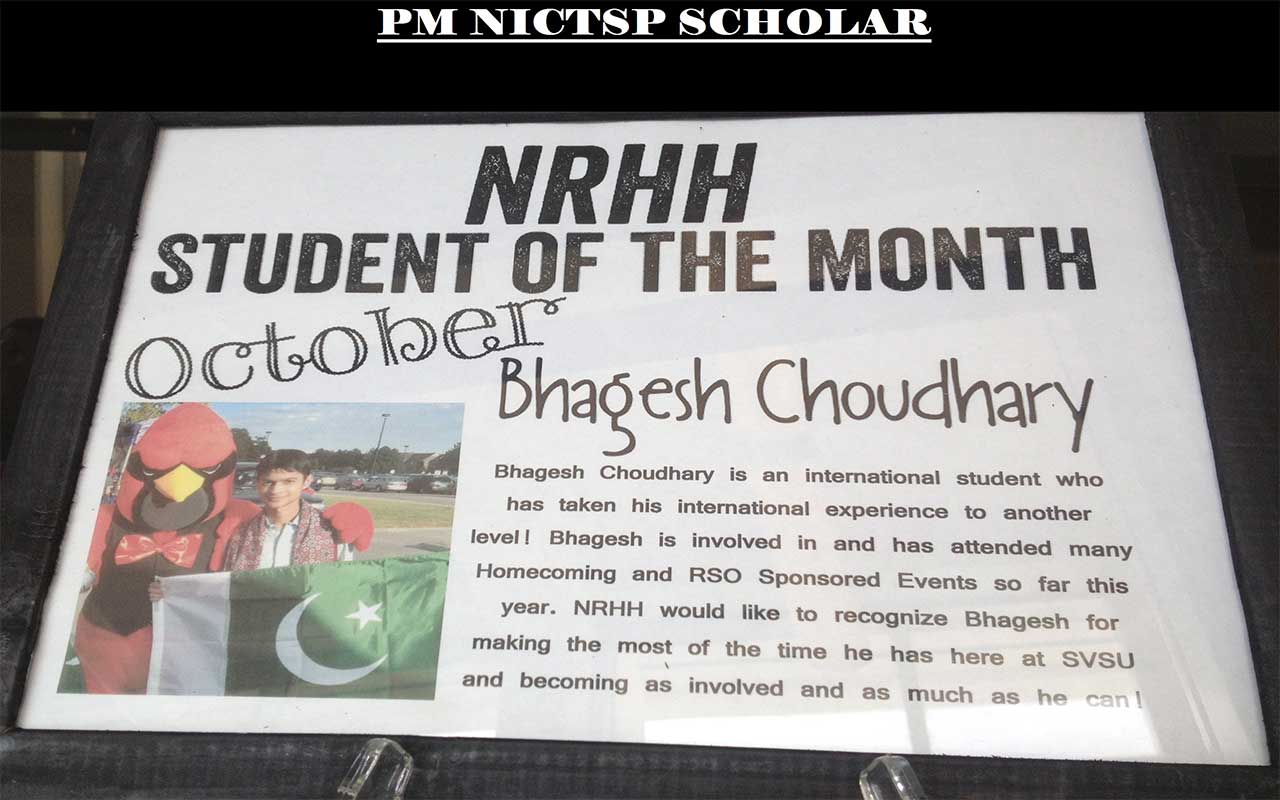CEO Ignite, Mr. Asim Shahryar Husain, visited the National Incubation Center at LUMS, Lahore (NICL),where he praised the efforts of the team and the superior facilities saying, “This visit to NICL was an eye-opener… the co-working spaces, Makers Lab, training rooms at NICL are world-class.”
Mr. Husain, recently appointed to his role at the national technology fund and on his maiden visit to NICL, toured the facility and was given a comprehensive update on the progress at the Center.
Sharing his views about the entrepreneurial journey and ecosystem he emphasized, for a start-up to be successful, it has to interact with different players in the ecosystem, including mentors, faculty and other start-ups to ignite their passion, and that’s the objective here.
I’ve had the opportunity to meet some start-ups with interesting ideas today, our goal should be to accelerate and make them self-sustainable eventually, so they become companies that create jobs as well.
“Creating tech-enabled solutions in high impact areas for Pakistan is the only way to catapult economic growth,” said Mr. Ahmad, emphasizing that NICL is “on a mission to radically uplift skills-level, exposure and connectivity for our program participants so we can showcase a model for realizing Pakistan’s immense youth potential. By inspiring, enabling, engaging and facilitating recruits from all over Pakistan, we are hopeful to ignite a movement to create, innovate and solve for ourselves by ourselves.”
NICL is focused on the development of five key industry verticals: agriculture, education, environment, finance and healthcare. Its aim is to facilitate tech-enabled solutions that use the power of block chain, artificial intelligence and machine learning, cloud, virtual reality and augmented reality, as well as specialist hardware to create commercially successful businesses that help overcome critical challenges in Pakistan.
Mr. Husain and his team, Mr. Umair Qureshi, Manager Monitoring at Ignite and Head of DigiSkills, and Mr. Ihsan Elahi, Manager Projects at Ignite, were given a tour of NICL’s state-of-the-art facility, including co-working spaces and conference rooms dedicated for start-ups.
They were also given a tour and presentation on the Makers Lab and were shown the equipment available to start-ups, including a 3D printer for prototyping, a CNC machine, and PCB manufacturing lab.
The Makers Lab is a project aimed to facilitate start-ups in rapidly prototyping their products, a single facility where anyone looking to make a hardware product can convert their ideas into reality.
The team was also shown the Facebook Innovation Lab for virtual- and augmented-reality based solutions, and the Innowi Usability Lab that provides hands-on learning opportunities to start-ups in witnessing building integrated wireless solutions.
Showcasing the depth and diversity of ideas being incubated, key start-ups from NICL’s graduating 6th cohort were given the chance to network with the Ignite team and present their ideas.
These entrepreneurs were part of 34 inspiring start-ups from across NIC Lahore and NIC Quetta who then pitched their ideas to seasoned investors and experienced venture capitalists at NICL’s flagship Investor Summit on April 10. Select start-ups will continue to receive more guidance and facilitation as they continue their entrepreneurial journey and commercialize their ideas.
Vice Chancellor Dr. Arshad Ahmad also acknowledged Ignite’s continued support and appreciated Mr. Hussain’s visit to LUMS where he outlined his vision and mutual areas of collaboration.
During these meetings, the VC highlighted how NIC LUMS has sharpened its focus on new verticals, a revised curriculum, governance and engagement across schools to encourage innovation across campus. He said, “We are proud to contribute to our mutual goal of developing support systems to incubate and accelerate a culture of entrepreneurship in Pakistan.”
Concluding his visit, Mr. Husain mirrored the mission of NICL and encouraged aspiring entrepreneurs to “be original, be creative…let’s come up with solutions to local problems first.”
